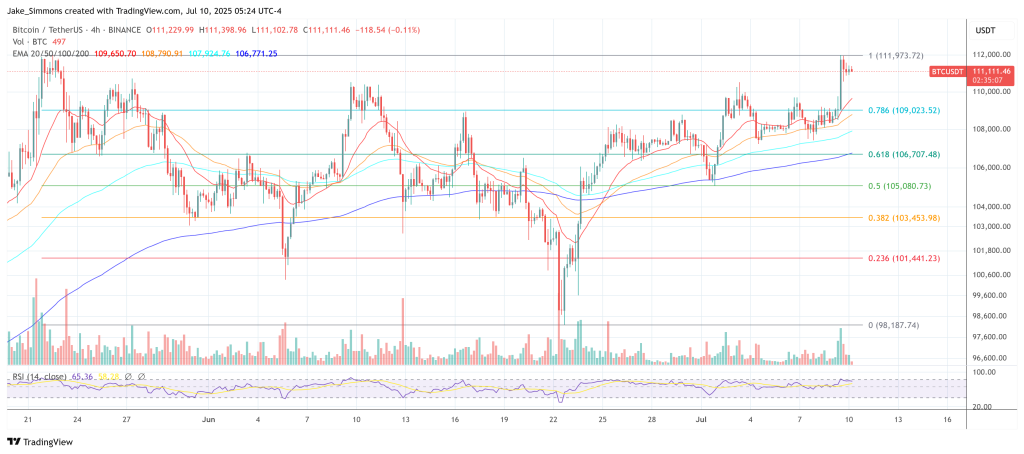It appears that the chaps at the Bitcoin Policy Institute have concocted a 30-page model bill, designed to entice US state treasuries to treat Bitcoin as a strategic reserve asset. One can almost hear the sound of fiduciary duty being stretched to its limits, as the authors proclaim this to be a “paradigm shift in monetary technology” 🤑. The “State-Level Strategic Bitcoin Reserve Toolkit” (one wonders if the title could be any longer) lays out a path for states to “diversify treasury holdings, hedge against currency debasement, and enhance long-term fiscal stability.” How quaint.
A 3% Gamble
The dynamic duo of Zack Shapiro and Zack Cohen (one assumes they are not related, merely bonded by their love of Bitcoin) assert that existing fiduciary mandates already empower treasurers to hold BTC. One can only imagine the looks on the faces of lawmakers as they are urged to seize a “competitive advantage” in attracting digital-asset businesses 🤣. The toolkit requires states to create a Strategic Bitcoin Reserve, kept entirely in cold storage, because, of course, one wouldn’t want those pesky hackers getting their grubby hands on the loot.
Each state is required to earmark a minimum of 3% of the prior fiscal year’s average daily balance in the General Operating Fund for annual Bitcoin purchases. One wonders if this is merely a clever ploy to prop up the price of Bitcoin 🤑. The proposal also permits additional inflows from seized assets, cryptocurrency tax payments, and a new class of tax-exempt Municipal BitBonds. Because, why not? 🤷♂️
Section 5 imposes a real-time Proof-of-Reserves regime, because transparency is key, or so one is told. The treasury must publish cryptographic signatures, wallet addresses, and balance updates “within one hour of any material change.” Giving the public continuous on-chain insight into state coffers, because who doesn’t love a good game of “follow the money”? 🤑
Beyond balance-sheet diversification, the bill ventures into industrial policy, because why not? 🤷♂️ It authorizes Bitcoin Tax-Advantaged Zones, offering capital-gains exemptions, sales-tax relief on mining hardware, and payroll-tax rebates for firms deriving at least 60% of revenue from BTC activity. One can almost hear the sound of tax accountants salivating at the prospect of exploiting these loopholes 🤑.
The drafters envision an aggressive rollout, because time is money, or in this case, Bitcoin. Within 90 days of enactment, a treasury would have to complete its first purchase; full operational capacity, including custody infrastructure, insurance, and reporting systems, must be reached within 120 days. One wonders if this is merely a clever ploy to create a sense of urgency 🕰️.
Notably, three US states have already put a strategic Bitcoin reserve into law. New Hampshire, Arizona, and Texas have all taken the plunge, because who needs caution when it comes to investing in cryptocurrency? 🤣
At press time, BTC traded at $111,111. One wonders if this is merely a clever ploy to create a sense of FOMO 🤑.

Read More
- TRUMP PREDICTION. TRUMP cryptocurrency
- Gold Rate Forecast
- USD CNY PREDICTION
- Brent Oil Forecast
- Bitcoin Takes a Nosedive, Heads for Uplift? 😱📈
- Crypto Chaos: How Biden’s “Operation Choke Point 2.0” Left Crypto High and Dry!
- Ant Group’s “ANTCOIN”: Will It Conquer Crypto? Find Out What’s Next!
- Cristiano Ronaldo’s Meme Coin: A Scandalous 15-Minute Financial Farce 🤡💸
- XRP Staking: A Tale of Tension and Tokens 🚀
- ETH PREDICTION. ETH cryptocurrency
2025-07-10 21:13